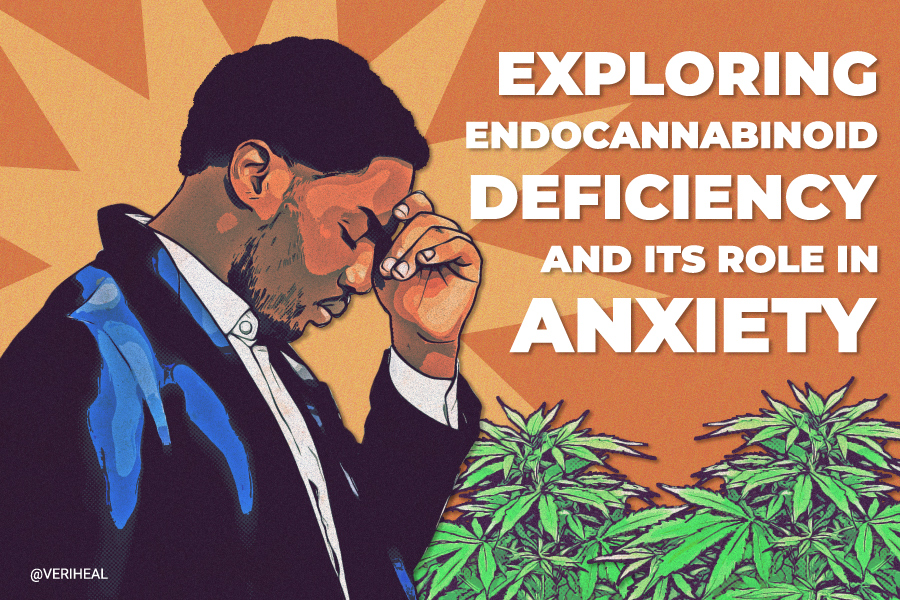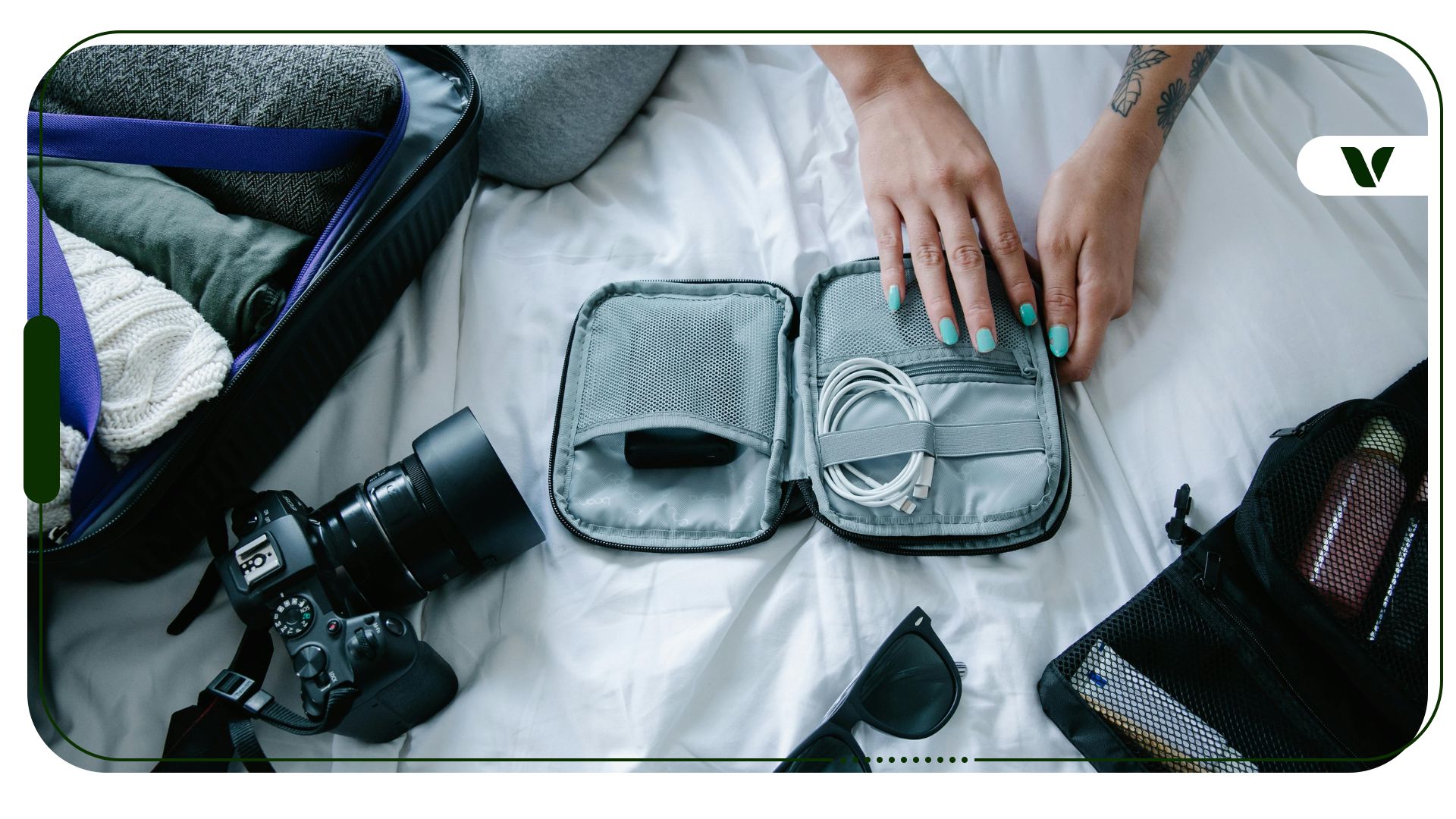Prior to becoming a cannabis coach and writer, I began my medical cannabis journey as a patient.
Years ago, l found myself in a constant state of anxiety. Like many people, I was overworking myself in the corporate setting and struggling with depression and anxiety under the weight of my growing personal and professional responsibilities.
After years of struggle, I finally turned to cannabis in my time of need. The practical application of cannabis was a game-changer for me and allowed me to manage my day-to-day anxieties with greater ease.
Cannabis didn’t take the stress of life away, by any means. But cannabis allowed me to “bounce back” from stress and anxiety more quickly and opened up access to more calm and present moments. Cannabis also helped me to center my mind and my body despite the complexities of my personal and my professional life.
I began to get curious about the correlation between cannabinoids and anxiety management. Years later, after studying the cannabis plant and gaining the opportunity to guide many clients to better endocannabinoid health as a cannabis coach, I continue to follow this topic with great interest.
Anxiety is one of the common reasons that medical cannabis users begin their supplementation of cannabis. Patients often find that with a consistent regimen of the right cannabinoids, their mood is stabilized and they are able to maintain a lower anxiety level throughout their everyday experience.
A 2018 patient survey adds data to this assertion. This survey was conducted to analyze patient responses to using cannabis for their anxiety. Data from the cannabis tracking app Strainprint was collected for over 5,000 people living with anxiety, and the results reveal that respondents experienced a 58% reduction in anxiety and stress with the support of cannabinoids.
There is a great demand for anxiolytic medicines, or those that help to mitigate anxiety. Recent statistics show that 40 million American adults currently experience anxiety. At a time when anxiety is reaching new heights and people are looking for alternative methods for addressing their post-pandemic discomfort, cannabinoids will likely play a vital role in patient wellness for millions of Americans.
In this article, I will explore some of the implications of endocannabinoid deficiency (a lack of enough cannabinoids in the body), anxiety, and how the two are related. Additionally, I will be reviewing some of the strategies that people with endocannabinoid deficiency can take to manage their own anxiety and improve their body’s ability to respond to external stressors.
The Role of the Endocannabinoid System
The reason that cannabis provides medicinal benefits to many people is that cannabis activates a system within the body called the endocannabinoid system (ECS). This is a complex system with many functions, but I will highlight the key points below.
The ECS is the largest receptor system in the human body and is responsible for maintaining balance, or homeostasis, within the body’s core systems.
The ECS is one of the major harm reduction networks in the human body. Its role is to return your body back to homeostasis after something has knocked it off-kilter. In this way, a healthy ECS is correlated to a resilient bodily system. It’s the ECS that allows us to regain balance after stress or anxiety has temporarily destabilized us.
Sometimes, We Don’t Have Enough Endocannabinoids
Endocannabinoids are fat-based neurotransmitters that are produced in our bodies. They are required by the ECS in order to provide its main function, which, again, is to regulate bodily processes and keep them in homeostasis.
With enough cannabinoids present in the body, whether internally sourced (endocannabinoids) or externally sourced (phytocannabinoids like those found in cannabis), the endocannabinoid system has what it needs to reestablish balance on demand.
However, sometimes we lack the endocannabinoids required to complete this balancing act. One term that has entered the conversation in the last two decades is the concept of “endocannabinoid deficiency,” which refers to a situation where a person doesn’t have enough endocannabinoids present in their ECS.
The concept of endocannabinoid deficiency was first pioneered in 2003 by Dr. Ethan Russo. In his paper Clinical Endocannabinoid Deficiency (CECD), he revealed that endocannabinoid deficiency has been correlated with many common ailments, such as migraines, fibromyalgia, IBS, Alzheimer’s disease, and more.
Anxiety May Be Correlated to Endocannabinoid Deficiency
After initially releasing his profound paper on endocannabinoid deficiency, Dr. Russo made revisions and released a new version in 2014. In the revision, he highlighted that based on new research, he considers anxiety to be one of the conditions that is correlated with endocannabinoid deficiency.
Cannabinoids have an important role in the management of anxiety and have been noted to have direct interaction with the parts of the brain that control stress and anxiety. Anxiety often stems from the fear of a certain trigger, trauma, or perceived trauma. Even something as simple as an email from our boss can trigger that feeling of anxious jitters in the body.
When the body has enough endocannabinoids available, we are able to regain resiliency after these life stressors. But when endocannabinoids are lacking, the ECS doesn’t have what it needs to initiate this balancing act. And in the case of anxiety, this can result in prolonged, or even continual, anxious thoughts and rumination.
Endocannabinoids exert their effects through interactions with the central nervous system, including regulation of the hypothalamic–pituitary–adrenocortical (HPA) axis, which is a functional unit within the brain that regulates the body’s response to stress. Cannabinoids also influence the function of the hippocampus and amygdala and the control of cortical regulation of memory processes.
In this way, the ECS acts as a recovery system, limiting HPA activity during stress. This supports the assertion that cannabinoids play an important role in the mitigation of endocannabinoid deficiency as well as anxiety.
Endocannabinoid System Guards Against Fear, Anxiety, and Stress
In a 2018 paper on this topic, “The endocannabinoid system in guarding against fear, anxiety and stress,” authors again reaffirmed the correlation between the endocannabinoid system and anxiety, saying, “A large number of pharmacological and genetic studies support the role of the eCB [ECS] system as an important regulator of anxiety-like behaviors.”
They also noted that changes to the enzyme levels within the ECS can change perceptions of anxiety. The ECS consists of enzymes, including FAAH, which exist to degrade endocannabinoids once they have completed their function.
Authors reported that “genetic deletion of fatty acid amide hydrolase (FAAH), the primary AEA-degrading enzyme in the CNS, leads to increased AEA levels in the brain and to decreased anxiety-like behavior.” Essentially, this suggests that when endocannabinoid levels are raised through the elimination of endocannabinoid-degrading enzymes, anxiety levels are improved.
As you can see, there has been a lot of promising research and study that suggests that the endocannabinoid system plays a direct role in terms of anxiety management. For the millions of people dealing with anxiety on a day-to-day basis, this provides hope and the ability to try a novel and natural approach to improving their quality of life.
Using Cannabis to Manage Your Anxiety
To help recover from anxious moments, you may consider using cannabis and/or CBD.
For most patients, the right daily dose of CBD can be very effective for mitigating anxiety and supporting mood stabilization. When we consume CBD, we are able to experience the “calm” or “zen” feelings that are often reported with CBD use. Additionally, intake of CBD can actually allow our bodies to generate additional endocannabinoids. CBD is truly a “one, two” punch against anxiety.
For many people, THC is also a beneficial cannabinoid for the reduction of anxiety. THC appears to decrease anxiety at lower doses and increase anxiety at higher doses. Therefore, if using THC to mitigate your anxiety, it is advised that you “start low and slow” and follow a careful titration process to find the right dose that is likely to be most comfortable for you.
There are also minor cannabinoids that can be taken in order to mitigate anxiety. CBG, for example, has shown to have promising results for many patients’ mental affect and behavior. Other cannabinoids, like CBN, can be used to enhance rest and promote sleep, which has positive downstream effects on anxiety levels.
There are many methods and approaches for using cannabis to manage anxiety. As you get started along this path, I recommend exploring cannabis with intention and taking a gradual approach. The ultimate goal is to restore your body’s overall balance…and a balanced ECS means balanced anxiety levels!
Want to learn more about anxiety and cannabis? We’ve got you covered! Check out these related posts:
Author, Share & Comments








